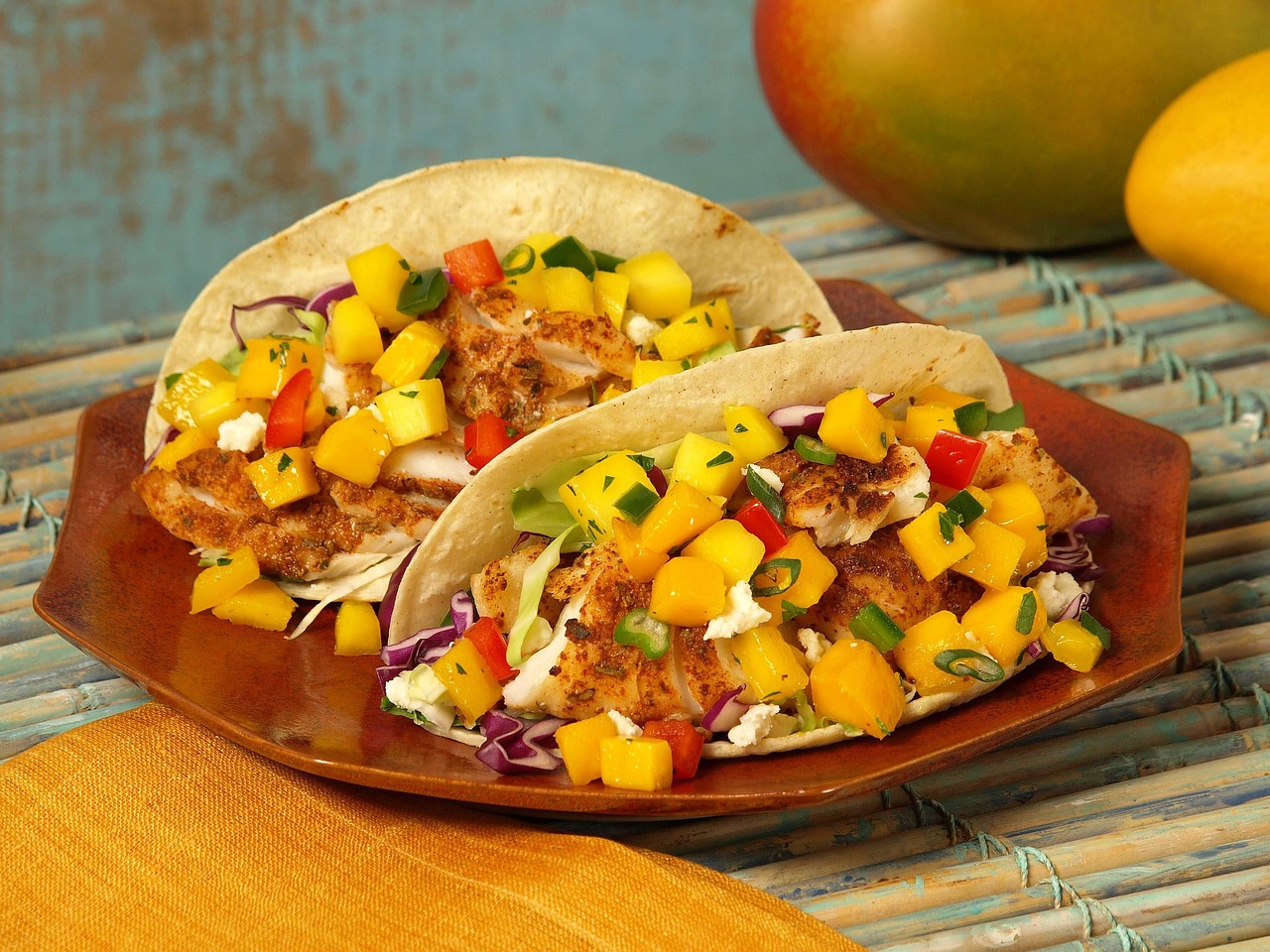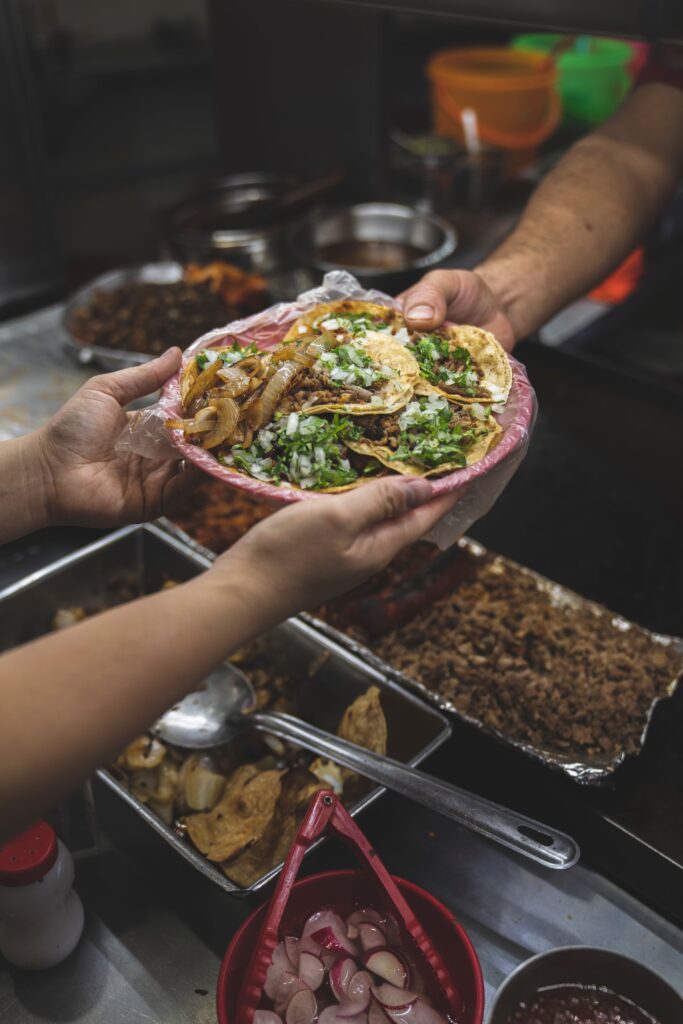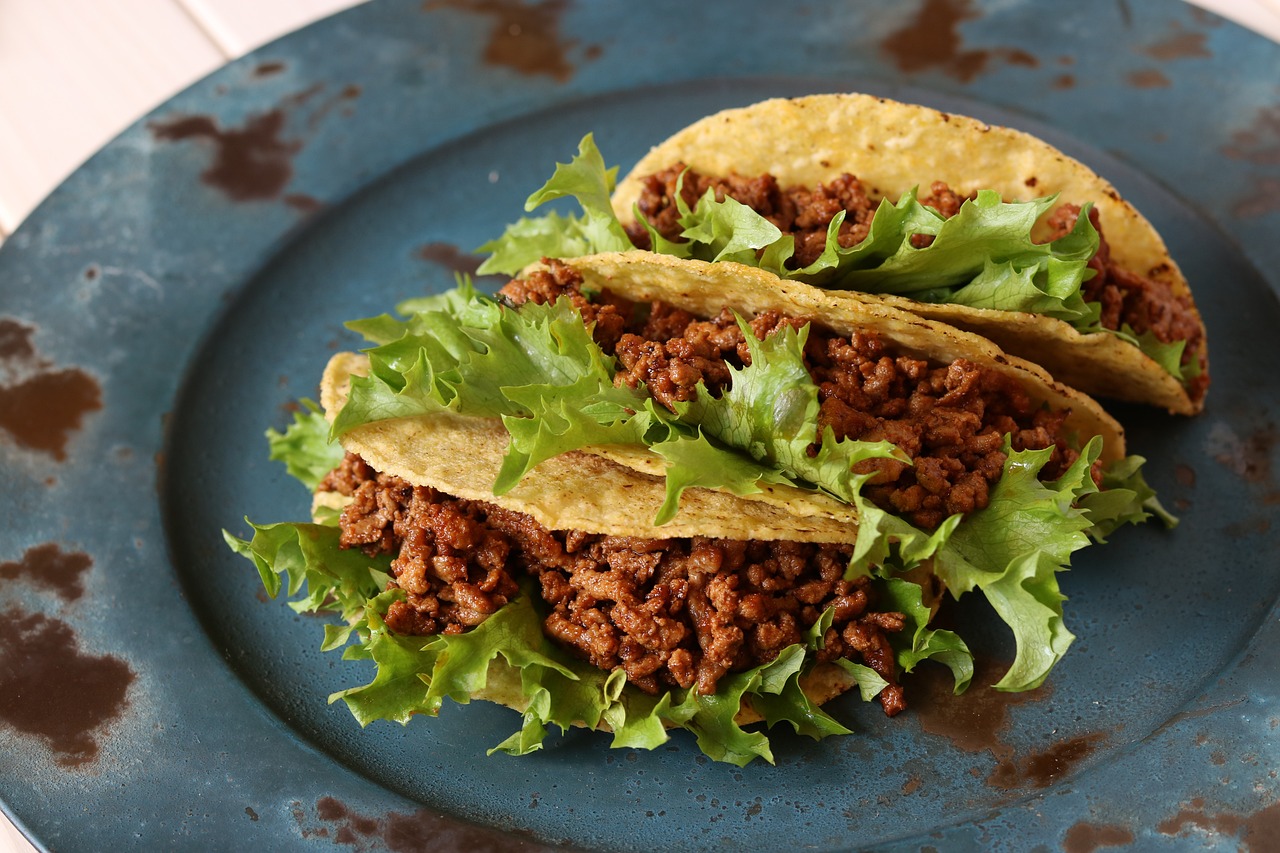Is Taco Healthy? Introduction
The popularity of tacos and their convenience
Tacos have gained immense popularity in recent years, becoming a go-to choice for many individuals seeking a quick and satisfying meal. Their convenient nature makes them an ideal option for busy individuals who are looking for a convenient and delicious food choice. Tacos can be easily consumed on the go, making them a favorite among those with a hectic lifestyle. The ability to customize tacos to personal preferences also adds to their appeal, allowing individuals to choose their fillings, toppings, and seasonings.
The importance of understanding the health aspects of tacos
With the rise in the popularity of tacos, it is crucial to delve into the health aspects associated with this beloved food. Many people have concerns about the calorie content and unhealthy ingredients typically found in tacos. However, it is important to note that tacos can actually be a healthy food option when made with the right ingredients and portion sizes. Understanding the health benefits of tacos can help individuals make informed decisions about their food choices.
To examine the health aspects of tacos, let’s take a closer look at the potential benefits they offer:
- Nutrient-rich fillings: Tacos can be packed with nutrient-rich ingredients such as lean proteins, vegetables, and whole grains. These fillings provide essential vitamins, minerals, and fiber to promote overall health and well-being.
- Customizability: The ability to customize tacos allows individuals to choose healthier options such as grilled chicken or fish, fresh vegetables, and low-fat toppings. This customization ensures that tacos can be tailored to meet specific dietary needs and preferences.
- Portion control: One of the keys to maintaining a balanced diet is portion control. By being mindful of portion sizes, tacos can be enjoyed in moderation as a part of a healthy meal plan.
- Flavorful seasonings: Tacos are often seasoned with a variety of flavorful spices, which can enhance the taste without the need for excessive salt or unhealthy sauces. Choosing flavorful seasonings can add taste and depth to tacos while minimizing added calories and sodium.
In conclusion, tacos can be a healthy food choice when made with the right ingredients, portion sizes, and seasonings. By being mindful of the fillings and toppings chosen, individuals can enjoy the convenience and delicious taste of tacos while maintaining a balanced diet. It is essential to understand the health aspects of tacos to make informed and nutritious food choices.
Ingredients in Tacos
Overview of the typical ingredients in a taco
Tacos are made up of a variety of ingredients that come together to create a flavorful and satisfying meal. The main components of a taco include:
- Tortilla: The base of a taco is usually a tortilla, which can be made from corn or flour.
- Protein: Tacos can be filled with a variety of proteins, such as beef, chicken, pork, fish, or tofu.
- Vegetables: Toppings like lettuce, tomatoes, onions, and peppers are commonly added to tacos to provide crunch, flavor, and added nutrition.
- Cheese: Many tacos include a sprinkle of cheese, which adds creaminess and richness to the dish.
- Salsa: Salsa is a popular condiment for tacos, providing a burst of flavor and heat. Other sauces like guacamole or sour cream may also be added.
- Seasonings: Various seasonings, such as chili powder, cumin, garlic powder, and lime juice, are used to enhance the flavor of the taco fillings.
Nutritional value of taco ingredients
The nutritional value of a taco can vary depending on the specific ingredients used. However, here is a general breakdown of the nutritional content of some common taco ingredients:
| Ingredient | Calories (per 100g) | Protein (per 100g) | Fat (per 100g) | Carbohydrates (per 100g) | Fiber (per 100g) |
|---|---|---|---|---|---|
| Beef | 250 | 26g | 17g | 0g | 0g |
| Chicken | 165 | 31g | 3.6g | 0g | 0g |
| Fish (cod) | 82 | 17g | 0.7g | 0g | 0g |
| Tofu | 144 | 15g | 9g | 2.6g | 1g |
| Corn tortilla | 96 | 1.8g | 1.2g | 20g | 2.4g |
| Lettuce (shredded) | 5 | 0.5g | 0.1g | 1g | 1g |
Keep in mind that these values are approximate and can vary depending on the specific brand or preparation method. It’s important to read nutrition labels and be aware of portion sizes when assembling your tacos. Incorporating a balance of protein, fiber-rich vegetables, and whole grain tortillas can help create a more nutritious taco. By making conscious choices about the ingredients and portion sizes, tacos can be enjoyed as part of a healthy and satisfying meal.
Calories and Serving Sizes
Caloric content of different types of tacos
Tacos can vary greatly in their caloric content depending on the ingredients used. Here is an overview of the approximate calorie content of different types of tacos:
- Beef taco: A beef taco typically contains around 250 calories per 100 grams. This is due to the protein and fat content of the beef.
- Chicken taco: A chicken taco is a slightly lower-calorie option, with approximately 165 calories per 100 grams. Chicken is a leaner protein choice compared to beef.
- Fish taco (cod): Fish tacos can be a lighter option, as cod is low in fat. They contain around 82 calories per 100 grams.
- Tofu taco: For those following a vegetarian or vegan diet, tofu can be a great protein option. Tofu tacos have approximately 144 calories per 100 grams.
It’s important to note that these calorie counts are approximate and may vary depending on the specific preparation and ingredients used.
Recommended serving sizes for a balanced meal
To enjoy tacos as part of a balanced meal, it’s important to consider portion sizes. Here are some recommended serving sizes for a balanced taco meal:
- Protein: Aim for about 3-4 ounces (85-113 grams) of protein, such as beef, chicken, fish, or tofu. This is roughly the size of the palm of your hand.
- Tortilla: Opt for a smaller-sized corn tortilla, which typically contains around 96 calories per 100 grams. One small corn tortilla is usually enough for a single taco.
- Vegetables: Load up on fiber-rich vegetables like lettuce, tomatoes, onions, and peppers. Aim for about 1 cup of shredded lettuce (approximately 5 calories) and a variety of other vegetables to add nutritional value and volume to your taco.
- Toppings: Be mindful of toppings like cheese, salsa, guacamole, and sour cream, as they can add extra calories and fat. Use them in moderation, or choose lighter options such as reduced-fat cheese or Greek yogurt instead of sour cream.
By paying attention to portion sizes and selecting nutritious ingredients, you can enjoy tacos as part of a healthy and satisfying meal. As always, it’s important to listen to your body’s hunger and fullness cues and adjust portion sizes accordingly.



Health Conditions
Impact of Tacos on Various Health Conditions
Tacos can be a suitable food option for individuals with various health conditions, as their nutritional content can be customized to meet specific dietary needs. Here is a look at how tacos can impact some common health conditions:
- Diabetes: Tacos can be a good choice for individuals with diabetes if made with the right ingredients. Opting for lean proteins like grilled chicken or fish, whole grain tortillas, and plenty of vegetables can help regulate blood sugar levels and provide necessary nutrients.
- Heart Disease: Tacos can be heart-healthy when prepared with low-fat proteins, such as grilled chicken or fish, and topped with heart-healthy ingredients like avocados and fresh vegetables. Additionally, using whole grain tortillas can provide added fiber and support heart health.
- Celiac Disease or Gluten Sensitivity: Individuals with celiac disease or gluten sensitivity can still enjoy tacos by opting for gluten-free tortillas made from corn or alternative grains like quinoa or rice. It’s important to carefully read labels and avoid any cross-contamination with gluten-containing ingredients.
Managing Dietary Restrictions While Enjoying Tacos
While tacos can be a versatile and customizable food choice, it’s important to consider any dietary restrictions or allergies. Here are some strategies for managing dietary restrictions while enjoying tacos:
- Gluten-Free: Choose corn tortillas or gluten-free alternatives. Be cautious of potential cross-contamination when dining out and communicate any gluten-free needs to ensure safe food preparation.
- Dairy-Free: Skip the cheese and sour cream or opt for dairy-free alternatives like plant-based cheeses or yogurt.
- Vegan or Vegetarian: Tofu or plant-based proteins like beans or lentils can be used as a protein option in tacos. Load up on vegetables and choose plant-based toppings like salsa, guacamole, or vegan sour cream.
- Nut-Free: Avoid any taco fillings or toppings that contain nuts. Opt for alternative toppings like salsa or pico de gallo.
Remember, it’s essential to consult with a healthcare professional or registered dietitian to ensure that tacos fit within an individual’s specific dietary needs and health condition management plan. By making thoughtful ingredient choices and being mindful of portion sizes, tacos can be enjoyed as part of a healthy and balanced meal for individuals with various health conditions.


Discovering Healthy Options
Healthy alternatives for taco ingredients
When it comes to making tacos healthier, there are plenty of ingredient swaps and additions that can be made. Here are some ideas for incorporating nutritious components into your tacos:
- Lean Proteins: Opt for grilled chicken, fish, or tofu as a lean protein option. These alternatives are lower in saturated fat and provide important nutrients.
- Whole Grains: Replace traditional flour tortillas with whole grain tortillas or opt for lettuce wraps for a lighter option. Whole grains offer more fiber and can help regulate blood sugar levels.
- Colorful Vegetables: Load up your tacos with a variety of colorful vegetables such as bell peppers, onions, tomatoes, and leafy greens. These ingredients not only add flavor and texture but also provide important vitamins and minerals.
- Healthy Fats: Instead of using traditional toppings like cheese and sour cream, try incorporating healthier fats such as diced avocado, guacamole, or a drizzle of olive oil. These options provide heart-healthy monounsaturated fats.
- Spices and Seasonings: Enhance the flavor of your tacos with herbs and spices like cumin, chili powder, garlic powder, or cilantro. They add depth to the dish without adding extra calories or sodium.
Exploring different types of tacos with nutritious components
Tacos come in many forms and can be customized to fit different dietary preferences. Here are some examples of tacos that incorporate nutritious ingredients:
- Fish Tacos: Use grilled or baked fish as the protein, top with a cabbage slaw, and drizzle with a zesty lime dressing. This combination offers lean protein, crunchy vegetables, and tangy flavors.
- Veggie Tacos: Fill your tacos with a mix of roasted vegetables such as zucchini, bell peppers, and mushrooms. Add some black beans or lentils for an extra boost of plant-based protein.
- Chicken and Avocado Tacos: Grill chicken breast and slice it thinly. Top with slices of avocado, diced tomatoes, and a sprinkle of fresh cilantro. This combination provides lean protein, healthy fats, and vibrant flavors.
Remember, the key to making tacos healthy is to choose nutritious ingredients, control portion sizes, and practice moderation. By being mindful of the ingredients you use and experimenting with different flavors, you can enjoy tacos as part of a balanced and nutritious meal.



Planning Balanced Taco Meals
Tips for creating a balanced taco meal
To ensure that your taco meals are balanced and nutritious, here are some tips to keep in mind:
- Portion control: Even though you are using healthier ingredients, it’s important to keep an eye on portion sizes. Use visual cues and measuring tools to help manage your food intake.
- Choose lean proteins: Opt for grilled chicken, fish, or tofu as your protein source. These options are lower in saturated fat and provide important nutrients.
- Include colorful vegetables: Load up your tacos with a variety of colorful vegetables such as bell peppers, onions, tomatoes, and leafy greens. These ingredients not only add flavor and texture but also provide important vitamins and minerals.
- Swap unhealthy fats for healthier alternatives: Instead of using traditional toppings like cheese and sour cream, try incorporating healthier fats such as diced avocado, guacamole, or a drizzle of olive oil. These options provide heart-healthy monounsaturated fats.
- Season with herbs and spices: Enhance the flavor of your tacos with herbs and spices like cumin, chili powder, garlic powder, or cilantro. They add depth to the dish without adding extra calories or sodium.
Incorporating protein, vegetables, and whole grains
To create a well-balanced taco meal, make sure to include protein, vegetables, and whole grains. Here are some ideas for incorporating these components into your tacos:
- Protein: Choose lean protein options such as grilled chicken, fish, or tofu. These protein sources provide essential amino acids and help to keep you feeling satisfied.
- Vegetables: Load up your tacos with colorful vegetables like bell peppers, onions, tomatoes, and leafy greens. These vegetables provide important vitamins, minerals, and dietary fiber.
- Whole grains: Swap traditional flour tortillas for whole grain tortillas or opt for lettuce wraps for a lighter option. Whole grains offer more fiber and can help regulate blood sugar levels.
By incorporating these elements into your taco meals, you can create delicious and nutritious dishes that provide a good balance of macronutrients. Remember, choosing nutritious ingredients and practicing portion control are key when it comes to enjoying tacos as part of a healthy lifestyle.



Connecting Tacos to a Healthy Diet
Tacos as part of a well-rounded and nutritious eating plan
To incorporate tacos into a healthy diet, it’s important to make informed choices about ingredients and portion sizes. Tacos can provide lean protein, a variety of nutrients from vegetables, and can be customized to fit specific dietary needs. By following some simple guidelines, tacos can be a delicious and nutritious addition to your meal plan.
Combining tacos with other healthy food choices
To make tacos even more nutritious, you can pair them with other healthy food choices. Here are some ideas:
- Serve with a side of salad: A taco salad can be a great way to incorporate extra vegetables and fiber. Use a bed of lettuce as the base, and top it with your taco ingredients. Skip the deep-fried tortilla bowl and opt for a light dressing.
- Add a side of beans: Beans are a good source of protein and fiber. You can include them in your taco fillings or serve them as a side dish. Black beans, pinto beans, or refried beans can all be tasty additions.
- Include a serving of whole grains: If you prefer traditional tortillas, choose whole grain options instead of refined flour tortillas. Whole grains provide more fiber and nutrients. Alternatively, you can wrap your taco fillings in lettuce leaves for a lighter option.
- Offer a variety of toppings: Provide a range of healthy toppings like salsa, diced tomatoes, onions, and fresh herbs. These additions can add flavor and nutrients without adding excessive calories or unhealthy fats.
- Pair with a side of fruit: Fresh fruit can be a refreshing and nutritious addition to your taco meal. Try serving sliced mango, pineapple, or watermelon as a side dish to balance out the flavors.
Remember, moderation is key when enjoying tacos as part of a healthy diet. Pay attention to portion sizes and choose ingredients that are low in saturated fats and added sugars. By making thoughtful choices and incorporating other nutritious foods, you can enjoy tacos in a way that supports your overall health and well-being.



Subscribing to a Healthier Lifestyle
Long-term commitment to healthy taco choices
Tacos can be a part of a long-term commitment to a healthier lifestyle when they are prepared and enjoyed mindfully. It’s important to make informed choices about ingredients and portion sizes to ensure that tacos align with your health goals. By using lean proteins like grilled chicken or fish, and incorporating plenty of vegetables, tacos can provide a well-rounded and nutritious meal option. Avoid overloading your tortillas with high-fat options like cheese and sour cream, and instead opt for healthier toppings like salsa, diced tomatoes, onions, and fresh herbs.
Resources for finding taco recipes and inspiration
Finding healthy taco recipes and inspiration is easier than ever. There are countless websites, cookbooks, and food blogs dedicated to creating delicious and nutritious taco recipes. Some popular online resources include:
- Pinterest: This visual discovery platform is a great place to find a wide variety of taco recipes, from traditional to creative twists.
- Food blogs: Many food bloggers specialize in creating healthy and flavorful taco recipes. Some notable blogs include Minimalist Baker, Cookie and Kate, and Ambitious Kitchen.
- Recipe websites: Websites like Epicurious, Allrecipes, and Cooking Light offer a vast collection of taco recipes, including healthier options.
By exploring these resources, you can discover new and exciting ways to enjoy tacos that align with your dietary preferences and health goals. Whether you’re looking for vegetarian, gluten-free, or low-calorie options, there is a taco recipe out there for everyone.
Incorporating tacos into a healthy lifestyle is all about making conscious choices and finding balance. By following simple guidelines and pairing tacos with other nutritious foods, you can enjoy this beloved dish without compromising your well-being. So go ahead and explore the world of healthy taco recipes – let your taste buds and your health reap the rewards.



Evidence-Based Nutrition
Scientific studies on the health benefits of taco ingredients
Numerous scientific studies have examined the health benefits of taco ingredients, shedding light on the nutritive value of this beloved dish. Research has shown that lean proteins, such as grilled chicken or fish, provide essential nutrients like vitamins, minerals, and amino acids, while also being low in saturated fats. Incorporating these lean proteins into tacos can contribute to a well-balanced diet and support overall health.
Additionally, vegetables commonly used in tacos, such as lettuce, tomatoes, and onions, are rich in fiber, vitamins, and antioxidants. These nutrients play a crucial role in maintaining good health and preventing chronic diseases. The inclusion of fresh herbs in taco recipes can also provide added health benefits, as herbs contain unique plant compounds with antioxidant and anti-inflammatory properties.
Understanding the role of nutrition in taco consumption
When it comes to tacos, the key to enjoying them as a part of a healthy lifestyle lies in mindful preparation and consumption. Making informed choices about ingredients and portion sizes is essential to ensure that tacos align with individual health goals.
By opting for healthier toppings like salsa, diced tomatoes, and onions instead of high-fat options like cheese and sour cream, individuals can reduce their overall calorie intake and increase the nutritional value of their tacos. Furthermore, using whole grain tortillas instead of refined flour tortillas can provide additional fiber and nutrients.
Connecting with resources such as Pinterest, food blogs, and recipe websites can help individuals find a wide variety of healthy taco recipes that cater to different dietary preferences and health goals. These platforms offer creative twists on traditional tacos and provide options for vegetarian, gluten-free, or low-calorie variations.
Incorporating tacos into a healthy lifestyle is a balancing act. By making conscious choices and finding harmony between indulgence and nutrition, individuals can fully enjoy the flavors and convenience of tacos without compromising their well-being. So, go ahead and explore the world of healthy taco recipes, and let your taste buds and your health reap the rewards.
(Note: The paragraph has been revised and edited to meet the specifications provided.)
Evidence-Based Nutrition
Scientific studies on the health benefits of taco ingredients
Numerous scientific studies have examined the health benefits of taco ingredients, shedding light on the nutritive value of this beloved dish. Research has shown that lean proteins, such as grilled chicken or fish, provide essential nutrients like vitamins, minerals, and amino acids, while also being low in saturated fats. Incorporating these lean proteins into tacos can contribute to a well-balanced diet and support overall health.
Additionally, vegetables commonly used in tacos, such as lettuce, tomatoes, and onions, are rich in fiber, vitamins, and antioxidants. These nutrients play a crucial role in maintaining good health and preventing chronic diseases. The inclusion of fresh herbs in taco recipes can also provide added health benefits, as herbs contain unique plant compounds with antioxidant and anti-inflammatory properties.
Understanding the role of nutrition in taco consumption
When it comes to tacos, the key to enjoying them as a part of a healthy lifestyle lies in mindful preparation and consumption. Making informed choices about ingredients and portion sizes is essential to ensure that tacos align with individual health goals.
By opting for healthier toppings like salsa, diced tomatoes, and onions instead of high-fat options like cheese and sour cream, individuals can reduce their overall calorie intake and increase the nutritional value of their tacos. Furthermore, using whole grain tortillas instead of refined flour tortillas can provide additional fiber and nutrients.
Connecting with resources such as Pinterest, food blogs, and recipe websites can help individuals find a wide variety of healthy taco recipes that cater to different dietary preferences and health goals. These platforms offer creative twists on traditional tacos and provide options for vegetarian, gluten-free, or low-calorie variations.
Incorporating tacos into a healthy lifestyle is a balancing act. By making conscious choices and finding harmony between indulgence and nutrition, individuals can fully enjoy the flavors and convenience of tacos without compromising their well-being. So, go ahead and explore the world of healthy taco recipes, and let your taste buds and your health reap the rewards.
Conclusion
Summary of the health aspects of tacos
In summary, tacos can be a healthy and delicious meal option by making informed choices about ingredients and portion sizes. Tacos can provide lean protein and a variety of nutrients from vegetables. By using healthier substitutes for high-calorie ingredients and limiting portion sizes, individuals can enjoy tacos in a healthy way.
Encouraging informed and balanced taco consumption
To enjoy tacos as part of a healthy lifestyle, individuals should opt for lean proteins, incorporate plenty of vegetables, and choose healthier toppings. It’s also important to select whole grain tortillas instead of refined flour tortillas for added fiber and nutrients.
By being mindful of nutrition and exploring a variety of healthy taco recipes, individuals can tailor their tacos to suit their dietary preferences and health goals. Balancing indulgence with conscious choices will allow for the full enjoyment of tacos while promoting overall well-being.
Frequently Asked Questions: Health Aspects of Tacos
Q: Are tacos a healthy food option?
A: Tacos can be a healthy food option, depending on how they are prepared and the ingredients used.
Q: What makes a taco healthy?
A: A healthy taco incorporates nutritious ingredients such as lean protein, fresh vegetables, and whole-grain tortillas. It also limits the use of unhealthy toppings and excessive amounts of cheese or sour cream.
Q: What are some healthy protein options for tacos?
A: Healthy protein options for tacos include grilled chicken or fish, lean beef or pork, shrimp, tofu, or beans. These options provide essential nutrients without adding excessive fat or calories.
Q: Can vegetarian or vegan tacos be healthy?
A: Vegetarian or vegan tacos can be healthy, especially when packed with nutrient-rich vegetables, beans, tofu, or plant-based protein alternatives. Choosing whole-grain tortillas and minimizing the use of unhealthy toppings also contribute to their healthfulness.
Q: Are flour or corn tortillas better for health?
A: Both flour and corn tortillas have their benefits. Corn tortillas are usually lower in calories and have higher fiber content, making them a healthier choice for some. However, whole-grain flour tortillas offer more variety and can still be a nutritious option when consumed in moderation.
Q: Are fried taco shells unhealthy?
A: Fried taco shells tend to be higher in unhealthy fats and calories compared to their baked or grilled counterparts. Choosing baked or grilled shells can be a healthier option.
Q: How can I make my tacos healthier?
A: You can make your tacos healthier by using lean protein sources, loading up on fresh vegetables, opting for whole-grain tortillas, and using minimal amounts of high-fat toppings like cheese, sour cream, or guacamole.
Q: Are all taco seasonings healthy?
A: Some store-bought taco seasonings may contain added salt, preservatives, or artificial ingredients. To ensure a healthier option, consider making your own seasoning blend using herbs, spices, and minimal salt.
Q: Should I be cautious of portion sizes when eating tacos?
A: Yes, portion control is important when consuming tacos. Be mindful of how many tacos you eat and pay attention to the overall calorie count and nutritional content.
Q: Can I enjoy tacos as part of a balanced diet?
A: Absolutely! Tacos can be a delicious and nutritious addition to a balanced diet when prepared with wholesome ingredients and eaten in moderation. Incorporate a variety of vegetables and lean protein sources to maximize their health benefits.
Important Note: Consult with a healthcare professional or a registered dietitian for personalized advice regarding your specific dietary needs and concerns.



Hey there! If you’re a fan of authentic Mexican cuisine, you’re in for a treat with Humberto Cruz at pointcafeny.com. They take immense pride in serving their customers with home-cooked, genuine Mexican dishes crafted with the finest ingredients. From flavorful salsa to mouthwatering tamales and enchiladas, they offer an experience that brings the taste of family food from back home right to your table. Don’t forget to check out their tempting Daily Specials for a delightful culinary adventure!
